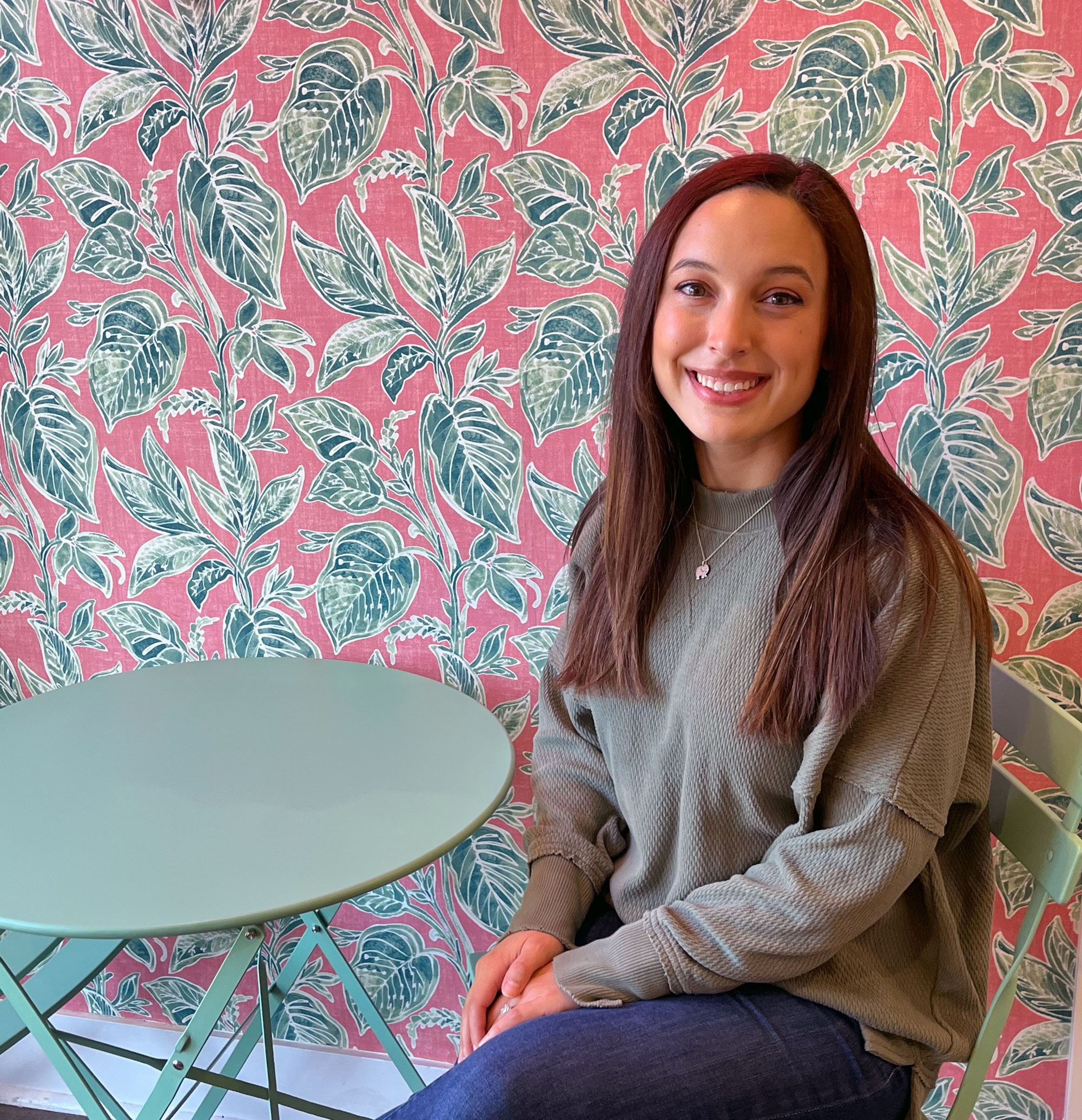
Matcha Magic Matcha Magic Matcha Magic
An engineer by training, Rachel Barnecut's plant-forward matcha bar is part of her quest to attract new people to try their drinks.
By Aleenah Ansari | January 26, 2023
Seeds for entrepreneurship often are planted over time. This was the experience of Rachel Barnecut, ’12, ’18, the founder of Matcha Magic, who had previously worked as a barista, product designer and more before she started her own business.
I sat down with Barnecut to learn more about how she went from working in tech to opening Bellevue’s first plant-based matcha bar in 2022. This conversation has been edited for clarity and length.
Before you started Matcha Magic, you earned two degrees in engineering from the UW, studied Human Centered Design and Engineering and worked in tech. What led you to that, and when did you realize that you wanted to start your own business?
I stumbled on Human Centered Design and Engineering at the University of Washington and resonated with the focus on making products and services more intuitive for users. I started my career at Boeing, where I worked on a number of teams over the course of nine years to improve internal and external tools based on user feedback and testing.
When the pandemic hit, I realized that I wanted to start something new. My husband has an entrepreneurial spirit and was passionate about his work in the restaurant and hospitality industry. During the pandemic, we started talking about what it would be like to leave Boeing for something new.
What made you interested in starting a matcha bar?
My husband and I went to China at the beginning of 2019, where we tried matcha at several tea fields and fell in love with it. I had also seen matcha bars open in major cities like New York City and L.A., so I felt there was a market for it. I started talking to my family and friends about what a business, brand, and menu for a matcha bar would look like. They reminded me that I could always go back to a more corporate role if I wanted to, so I felt like I could take the leap.
How did you develop your menu at Matcha Magic?
At a typical coffee shop, matcha is not the focus of the menu, and it can be overwhelming at a traditional tea house with a number of loose-leaf teas to choose from. I wanted to offer a clearer 1:1 alternative for espresso-based drinks. That way, people could feel more comfortable trying matcha for the first time or make the switch.
The potions we serve are where the magic comes in. Potions are elevated lattes made with boosters and adaptogens like ashwagandha, collagen, and tremella. These offer additional health benefits that elevate drinks on top of matcha’s antioxidants and energy-booting properties.
What advice do you have for entrepreneurs, small business owners, or anyone who wants to start something for themselves?
Find ways to keep learning, whether it’s through school, new roles, or starting something new. If I still worked in tech, I might be doing the same thing every day – now, I haven’t done the same thing every day the past few months.
About the author: Aleenah Ansari (she/her) is equal parts storyteller, creative problem solver, and journalist at heart who’s rooted in the stories of people behind products, companies, and initiatives. She writes about travel, entrepreneurship, mental health and wellness, and representation in media for Insider, The Seattle Times, Byrdie, and more. You can usually find her searching for murals, reading a book by a BIPOC author, or planning her next trip to New York. You can learn more at www.aleenahansari.com.